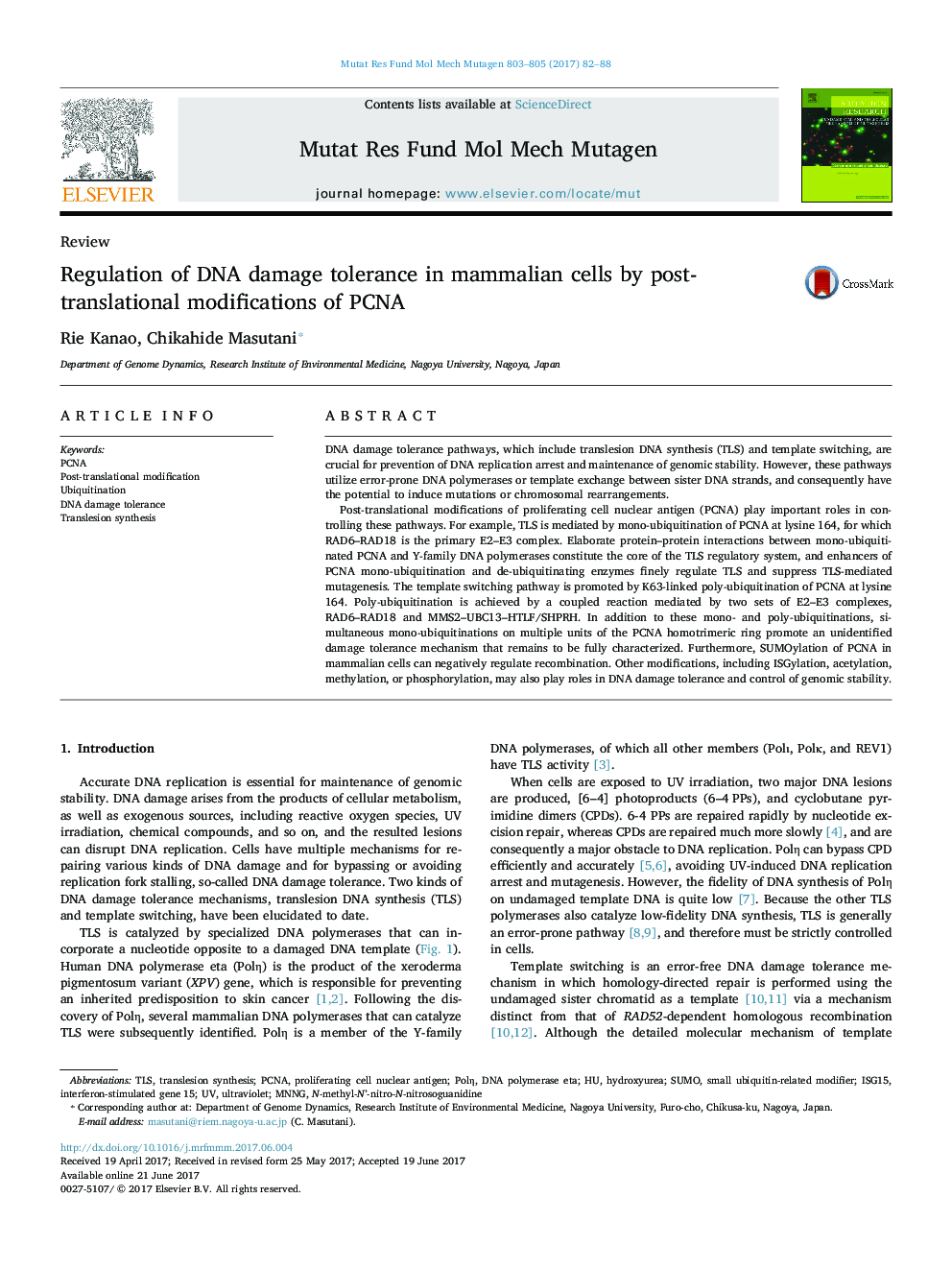| کد مقاله | کد نشریه | سال انتشار | مقاله انگلیسی | نسخه تمام متن |
|---|---|---|---|---|
| 5528666 | 1548303 | 2017 | 7 صفحه PDF | دانلود رایگان |

- PCNA mono-ubiquitination promotes TLS via interaction with Y-family DNA polymerases.
- Several factors regulate PCNA mono-ubiquitination either positively or negatively and suppress mutagenesis.
- Poly-ubiquitination of PCNA is catalyzed by UBC13-MMS2-HLTF/SHPRH with RAD6-RAD18, and promotes template switching.
- Simultaneous mono-ubiquitinations on multiple units of the PCNA homotrimeric ring promotes an unidentified DDT pathway.
- SUMOylation, ISGylation, acetylation, methylation, and phosphorylation of PCNA contribute to genomic stability control.
DNA damage tolerance pathways, which include translesion DNA synthesis (TLS) and template switching, are crucial for prevention of DNA replication arrest and maintenance of genomic stability. However, these pathways utilize error-prone DNA polymerases or template exchange between sister DNA strands, and consequently have the potential to induce mutations or chromosomal rearrangements.Post-translational modifications of proliferating cell nuclear antigen (PCNA) play important roles in controlling these pathways. For example, TLS is mediated by mono-ubiquitination of PCNA at lysine 164, for which RAD6-RAD18 is the primary E2-E3 complex. Elaborate protein-protein interactions between mono-ubiquitinated PCNA and Y-family DNA polymerases constitute the core of the TLS regulatory system, and enhancers of PCNA mono-ubiquitination and de-ubiquitinating enzymes finely regulate TLS and suppress TLS-mediated mutagenesis. The template switching pathway is promoted by K63-linked poly-ubiquitination of PCNA at lysine 164. Poly-ubiquitination is achieved by a coupled reaction mediated by two sets of E2-E3 complexes, RAD6-RAD18 and MMS2-UBC13-HTLF/SHPRH. In addition to these mono- and poly-ubiquitinations, simultaneous mono-ubiquitinations on multiple units of the PCNA homotrimeric ring promote an unidentified damage tolerance mechanism that remains to be fully characterized. Furthermore, SUMOylation of PCNA in mammalian cells can negatively regulate recombination. Other modifications, including ISGylation, acetylation, methylation, or phosphorylation, may also play roles in DNA damage tolerance and control of genomic stability.
Journal: Mutation Research/Fundamental and Molecular Mechanisms of Mutagenesis - Volumes 803â805, October 2017, Pages 82-88